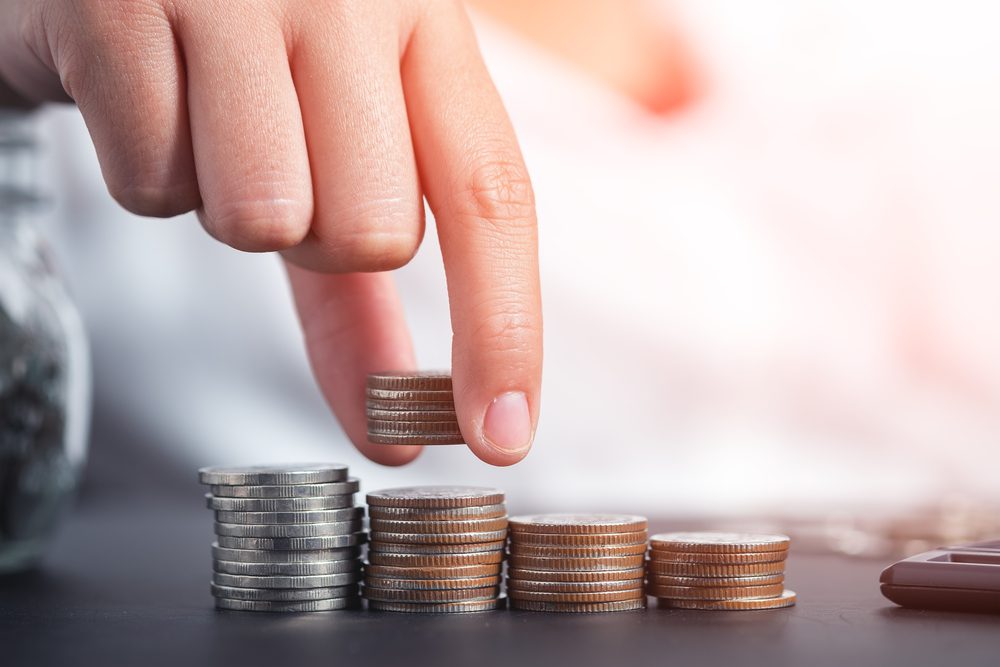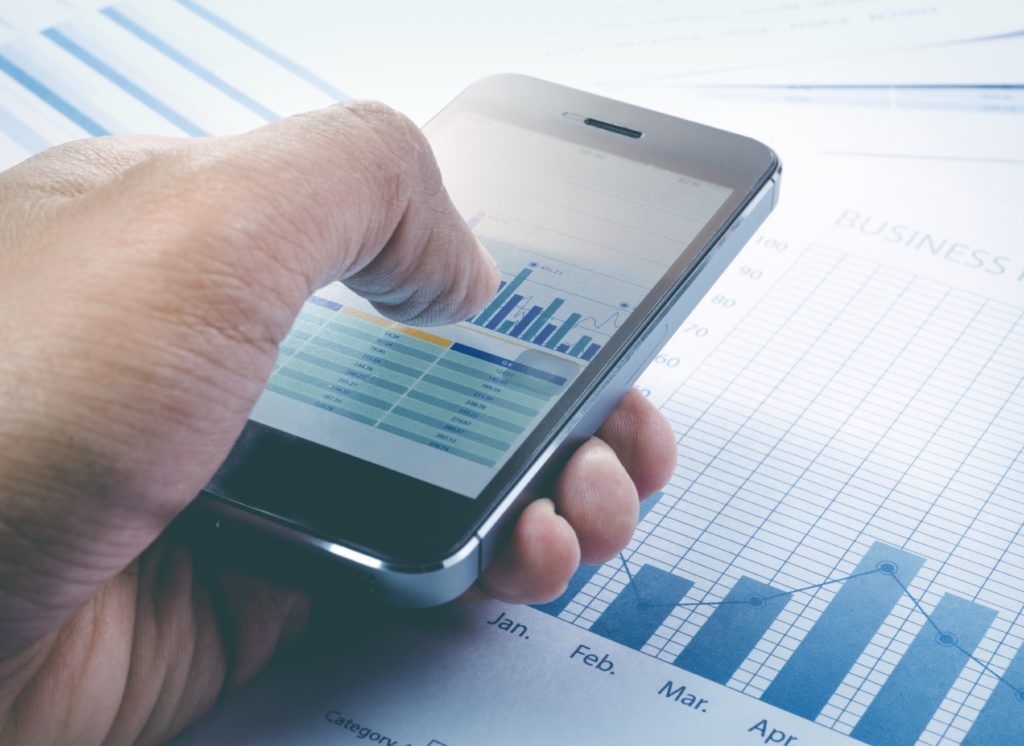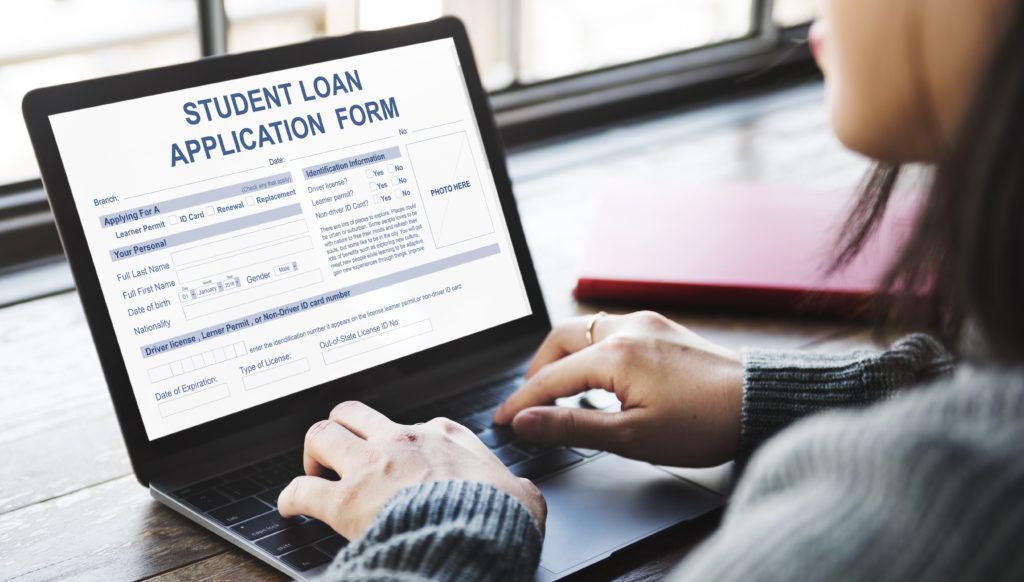
Clean up your financial act
As if a global pandemic was not enough, experts also warn that the world is heading towards an economic crisis like no other, as a result. This means we now have to pay even more attention to what we do with our money and try to eliminate the financial stress from our lives in order to focus on more important things like our health.
From cutting non-essential spending to setting up autopay or using money tracking apps, check out 16 efficient ways to streamline your finances during an economic crisis, according to financial specialists.
Review your income and expenses
One of the first things to start your financial evaluation with is your income and expenses ratio. In order to simplify your finances, it’s important to see how much you spend in relation to how much you earn. According to Adem Selita, CEO at The Debt Relief Company, “doing so will allow you to cut out expenses and better adapt to your situation.” “This can be a little time-consuming. But do it once, and you won’t have to worry about tracking your budget again. The simplest way to do this is on an Excel sheet,” adds Selita.
Related: 15 Reckless Things You Should Never Do with Your Money

Cut non-essential spending
Once you’ve evaluated your income and expenses, it’s time to go into more detail with your expenditures and pinpoint the non-essential things you recklessly spend your money on, advises consumer analyst Julie Ramhold of DealNews. Given the current economic turmoil, every penny saved counts.
“Right now, isn’t the time to splurge. It’s not a good time to go on a shopping spree if you’re concerned about finances,” says Ramhold. “Instead, cut out anything that isn’t absolutely essential. Try to find free alternatives for the fun things you enjoy. Now’s a good time to stick to staying in for date nights, returning to hobbies you already have the supplies for, or even just catching up that stack of books you’ve been meaning to read.”
If you want to know where to start cutting, here are 13 Things You Shouldn’t Purchase During a Recession.
Renegotiate your debt
With all the commotion all over the world, it’s also a pretty good time to try renegotiating your debt. Creditors seem more willing to offer leniency in terms of repayment or reduction strategies, which also might work to your advantage, for a change. “Banks are much more open to renegotiating your credit card debt right now, whether it be renegotiating APRs or the balances owed on your debts,” says Selita.
Related: 7 Times You Better Not Use a Debit Card for Payment

Consolidate your assets
Don’t put all your eggs in one basket? Not in this case. If you have various accounts housed at several financial institutions, you have to pay different fees for each one. According to financial specialists such as Andrew Roderick, CEO of Credit Repair Companies, a better option would be to combine your accounts into one account to avoid paying duplicated fees, make your portfolio more tax-efficient and keep a better track of all your money.
“Having one savings account makes it easier to keep track of how much you really have rather than having to check on several different accounts,” says Roderick. “This is also true for credit cards. A lot of people open different cards for perks such as zero interest. These perks are not always applicable forever though, so switching to just one card after there are no more rewards to redeem is much simpler.”
Set up automatic payments for bills
If you want another way to simplify your financial life, setting up an automatic payment for your bills could help you do just that. Among the dozens of tasks (if you’re lucky!) you need to carry out every month, wouldn’t it be great to have one less thing to worry about?
“You can use automatic payments for bills that are the same amount each month, as well as bills that have varying payment amounts,” explains Lisa Torelli-Sauer, editor at Sensible Digs. “Most credit card companies have a payment option that automatically drafts your checking account for the minimum payment due. You can still make an additional payment each month if you’d like, but you’ll have peace of mind knowing that your payment will never be late.”
Since we’re on the subject of bills, here are 13 Useful Tips to Save Big on Summer Utility Bills.

Create a balance sheet
To prevent your finances from adding even more stress to your life, take better control over your money. How? By creating a balance sheet that shows you all your assets and liabilities. “The 30,000-foot view of your financial life is your balance sheet. Every account, every asset, every liability — all in one place. Do this every year to keep your finger on the pulse of your personal financial life,” says Jacob Sadler, a certified financial planner for Woodstone Financial.
Luckily, the internet is filled with easy apps to help you out in this endeavor, right at your fingertips.
Set up direct deposits for money goals
Ask any savings-oriented friend what’s their secret to saving and streamlining their financial life, and they’ll tell you one of them is setting up direct deposits so that a portion of their paycheck goes into a savings account for emergencies or other priorities. Your employer needs to be on board for this, though.
“This will help ensure you meet your savings or investing goals first,” says Kimberly Hamilton, a certified financial education instructor and founder of Beworth Finance.
Related: 10 Money Mistakes You’re Making, According to Financial Experts

Change the due dates for your bills
The old adage “ask and you shall receive” may not apply in all situations, but sometimes it’s worth trying. That being said, if you have a bill that you’d rather not pay this month, try changing its due date to coincide with your payday. “Simply lining up bills with your income allows you to have a lot more control over your finances and where your money is going and when,” said Kyle Whipple, of Michigan-based Curtis Financial Group.
All you need to do is request the card company, lender or utility provider to change the due date. Most of them are flexible and willing to work something out. “Not only does this better position you to pay your bills, but it also allows you to pay them all around the same time, saving you the hassle of having to revisit your bills multiple times later in the month,” adds Hamilton.
Read also Cut These 11 Unnecessary Expenses and Save Money During the Coronavirus Crisis.
Use alerts to keep track of bills
If an automatic payment bill option doesn’t do the trick for you, there’s another way you could stay on top of your finances: use alerts to manage your bills. That way, you’ll make sure you’ll never forget to pay something important. According to Rebecca Lake, creator of Boss Single Mama, “if you’re stressed about money, it’s easy to forget to pay something which means you could get hit with a late fee, not to mention your credit score might take a hit”.
“If your bank or credit card company lets you, set up alerts to track due dates. Using those to stay on top of your bills can make life easier” and save you time and financial stress.
Related: 8 Most Important Financial Decisions of Your Life

Lower your debts
According to most reports, Americans, especially millennials, are carrying a lot of debt which is preventing them from carrying out other plans such as getting married, buying a home, a car etc. If you want to prevent the burden of debt from piling up, especially if your income has been affected by a sudden layoff or reduced working hours, it’s time to act. How? By reviewing your debt categories and trying to minimize your payments. “For student loans, you might consolidate or refinance, depending on whether you have federal or private loans,” says Lake. “And with interest rates as low as they are now, it could also be a great time to consider a mortgage refinance.”
Use one method to pay for things
Gone are the days when people used to pay in checks and cash only. We now have so many options that we sometimes lose track of money, from credit cards, cash, debit cards to Venmo, PayPal and other types of digital wallets.
Kari Lorz of Money for the Mamas suggests a more efficient method of paying for things. “Who knows how much you’ve spent across all these channels?” says Lorz. “Pick what works best for you and stick with that. My advice is to have two credit cards, use one for all your purchases. And I mean everything, so you can go back and look at all your spending in one place. You have a second credit card just in case you need to cancel the first one, so a backup.” In the meantime, stay away from these 14 Things You’re Paying Way Too Much For.

Freeze your credit with the credit bureaus
Freezing your credit is an efficient way to prevent identity theft, which affects millions of people in the United States every year. The major U.S. credit bureaus Equifax, Transunion and Experian can place a security freeze on your credit file and stop fraudsters from opening accounts in your name.
You’ve already got a pandemic to deal with, you don’t need an identity theft as well. “That way, you know that nothing shady is going on in case there’s a data breach. And there will always be data breaches,” says Lorz. “The peace of mind that this provides is priceless, and you’ll never have to clean up the aftermath of a stolen identity.” One thing you should also have in mind when it comes to a credit file freeze is that you won’t be able to open an account either.
Related: 9 Biggest Online Scams You Might Fall Victim To
Prioritize your largest debts
If you want to pay off your debt but don’t know where to start, Aleksandra Arsic, co-founder of Capital Counselor suggests starting with your largest ones. For example, if you own your home, the mortgage payment should be your highest priority. If you have a student loan that’s causing you a lot of stress, do everything in your power to pay it off first.
“If you have several debts, now is the time to strategize to ensure you’re taking the safest way in case of recession,” says Arsic. “Make sure to increase your payments on your most substantial debt, or the one with the highest interest rates, just in case all of this economic turmoil hits you personally. It’s good not to have a quickly growing debt.” To learn from other people’s experience, check out 14 Scary Credit Score Stories That Can Happen to Anyone.

Review your finances at least once a month
Even if you use an automatic payment method or alert tracks for your bills, there’s always something more you can do to stay on top of your finances. Wade Schlosser, CEO and founder Solvable recommends reviewing your finances at least once a month. Choose the same day every month and verify what’s going on with all your accounts.
“Look for unusual charges, review subscriptions you may not want to keep anymore and ensure any direct deposits you were expecting came in,” adds Schlosser.
Set up spending alerts for credit cards and checking accounts
If you don’t already have one, it’s time to activate a mobile banking alert. This type of tool can help you track your spending and alert you if there’s any unusual or suspicious activity on your account. Reviewing your finances once a month helps, but sometimes life gets in the way. You wouldn’t want to wake up one day and find out that unauthorized users have gone shopping with your money, do you?
“If you set up spending alerts to be sent to your phone or email each time activity occurs on your account, you’ll find out about unauthorized charges immediately,” Schlosser explains. “I recommend automating spending alerts and then reviewing all accounts monthly just to make sure nothing slipped through.”
Speaking of suspicious things, check out 7 Common Online Shopping Mistakes That Could Leave You Broke.

Use a website or an app to control your spending
If the fact that you’ve got no money left at the end of the month is not incentive enough to cut down on your spending, maybe a financial app can do a better job. According to Scott Trent, CEO and president of the real estate and investment website BiggerPockets, a financial website or app can give you a simplified picture of your spending habits and show you the areas you might need to cut back on.
Luckily, they’re all at the touch of a button.“I use Mint to help track all of my finances,” says Trent. “With this service … everything is automatically processed. Then at the end of each month, I can review my spending to analyze my spending habits for that month. The entire process to set up your account takes less than 10 minutes.”























